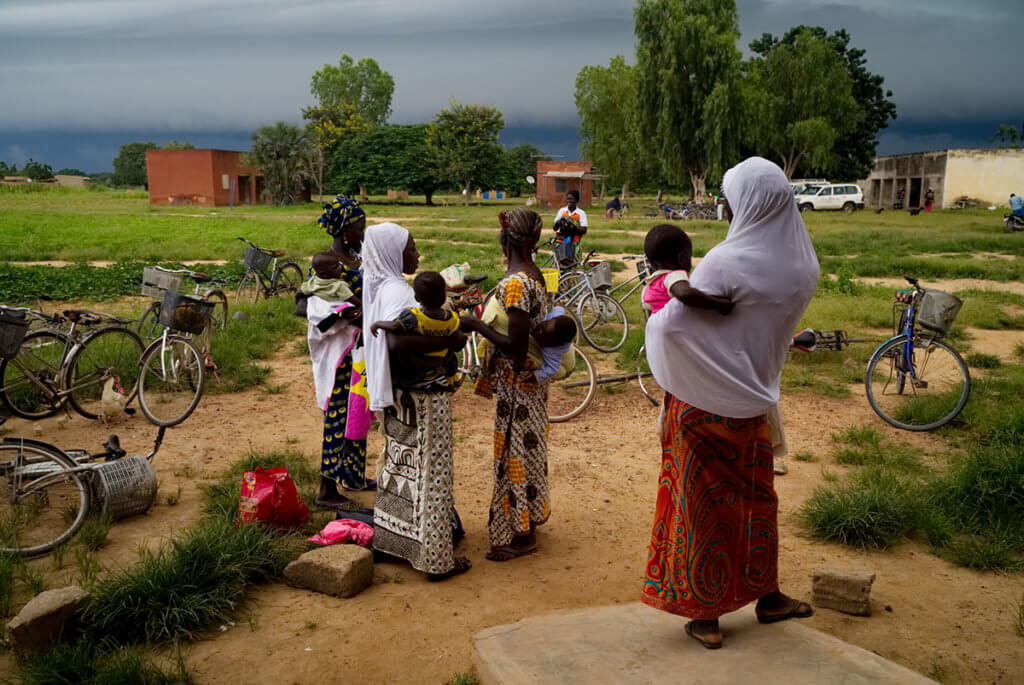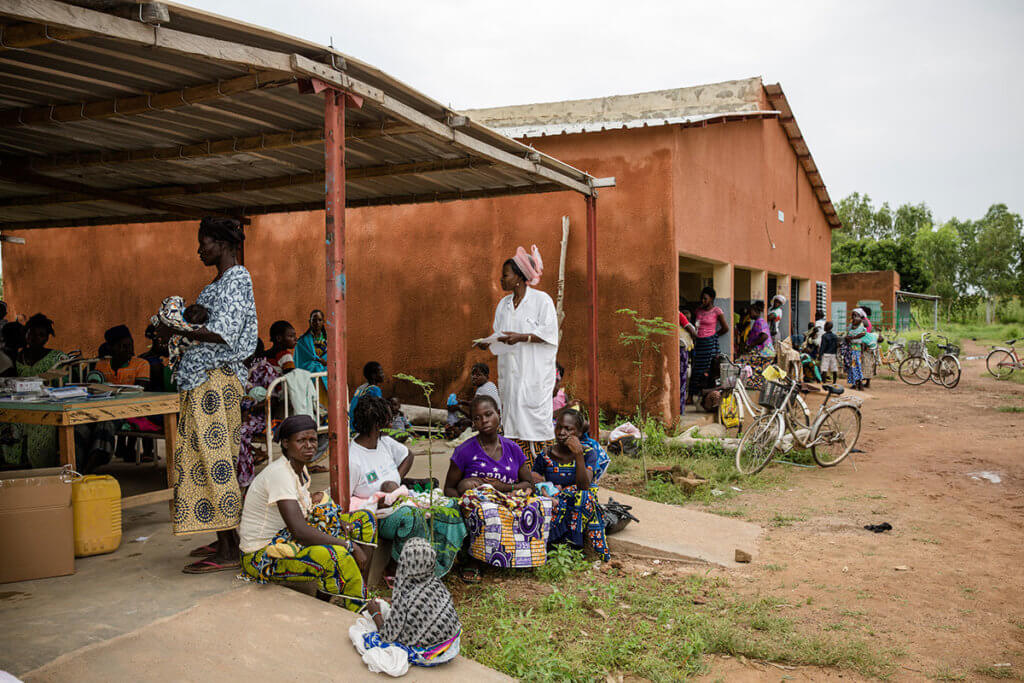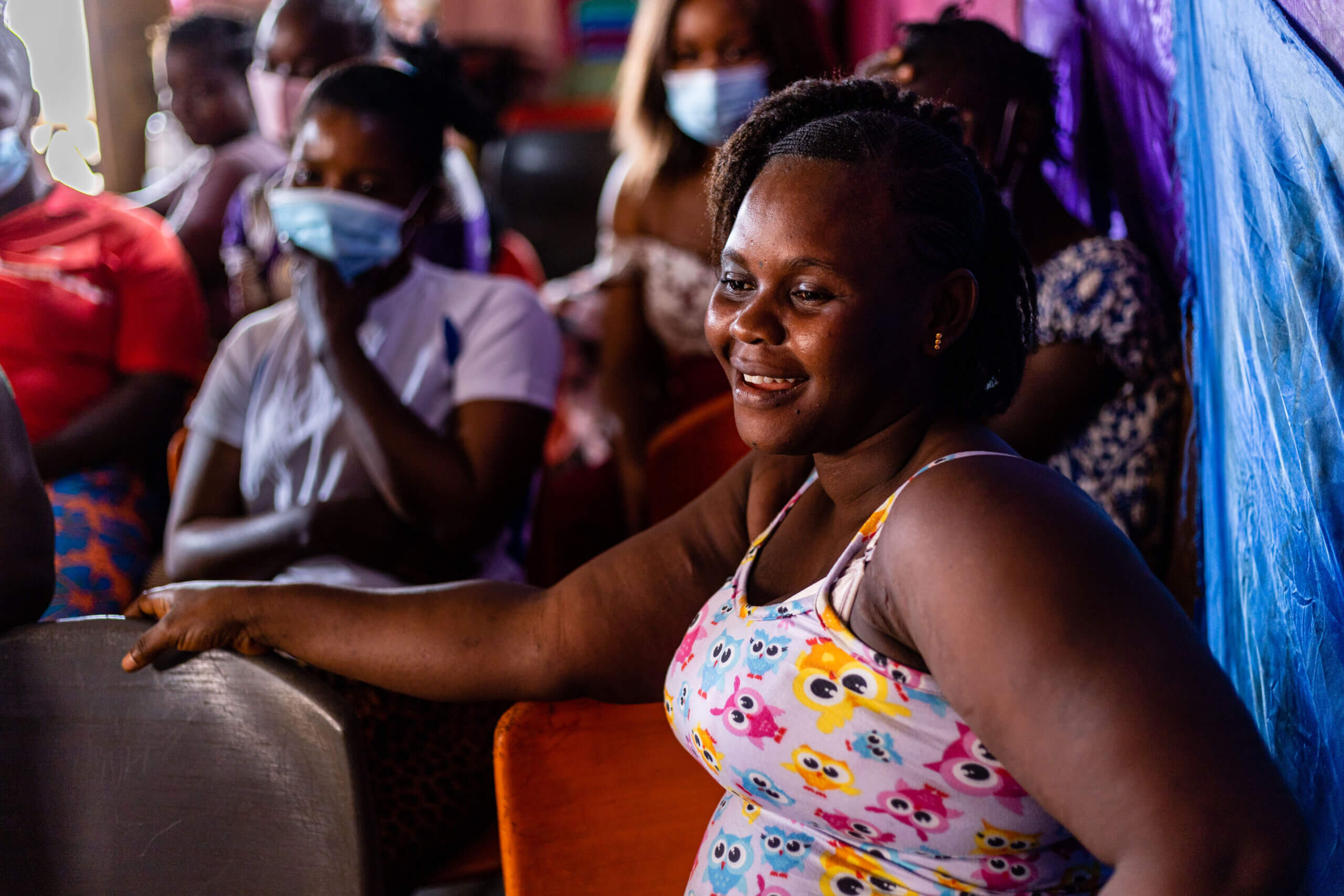Serving displaced people in Burkina Faso
Every woman deserves the chance to control her own body and decide her own future. But emergencies can block women from accessing the reproductive healthcare they need. That’s why providing reproductive healthcare is an essential part of any humanitarian response.
In 2020, Burkina Faso reached a horrible milestone: More than one million people forced from their homes by violence. One in twenty people in Burkina Faso is now internally displaced, meaning that they’ve been forced from their homes but have not left their country.
The vast majority of these internally displaced persons are women and children, many of whom need reproductive healthcare.

Reproductive health is critical in humanitarian settings
In a humanitarian crisis, people have many urgent needs: Safety, shelter, food and water. But in the rush to provide these essential services, women’s reproductive health needs are often entirely overlooked. There may simply not be enough health workers, shortages of contraceptives, or stigma surrounding reproductive health.
As a result, women lose the ability to control their own bodies at a moment when they most need certainty.
MSI is working to change that. Since 2019, we’ve been providing reproductive healthcare to women displaced by conflict in the North Central region of Burkina Faso, which is home to 40% of the country’s internally displaced persons.
Serving internally displaced persons
Our MSI Ladies and outreach teams visit camps for internally displaced persons, providing services such as sexually transmitted infection screening and treatment, HIV testing and referrals, cervical cancer screening and testing and services for the survivors of gender based sexual violence.
Yvette Yoda is part of one such team of doctors, nurses and midwives who provides life-saving reproductive healthcare services to women and girls in internally displaced person camps. It’s hard and dangerous work—attacks have even prevented MSI teams from reaching some communities. But Yvette is unwavering in her mission:
“Our fight is to ensure that women and, in particular, young girls are not victims of unwanted pregnancies.”

Saving lives by making choice possible
Yvette’s services are in high demand, and for good reason. The need is urgent. The risk of dying in childbirth increases dramatically in humanitarian settings, making preventing unwanted pregnancies all the more vital. Half of all pregnancy-related deaths worldwide occur in fragile states.
Women facing violent conflict also suffer higher levels of sexual violence, putting them at risk of STIs and HIV. Neglecting reproductive healthcare in humanitarian response leads to preventable pregnancy-related deaths, unsafe abortions, and the spread of STIs and HIV.
Providers like Yvette give women and girls the chance to regain some control of their futures in difficult circumstances. Every woman deserves the right to choose, even in a humanitarian crisis, and courageous MSI providers are making that possible.






